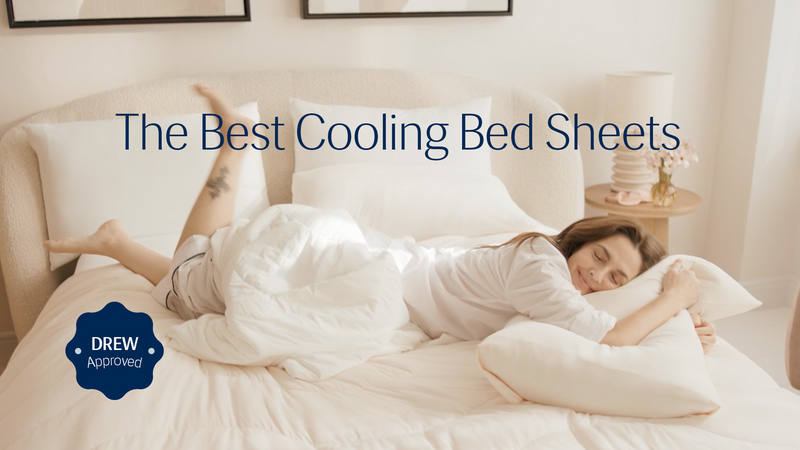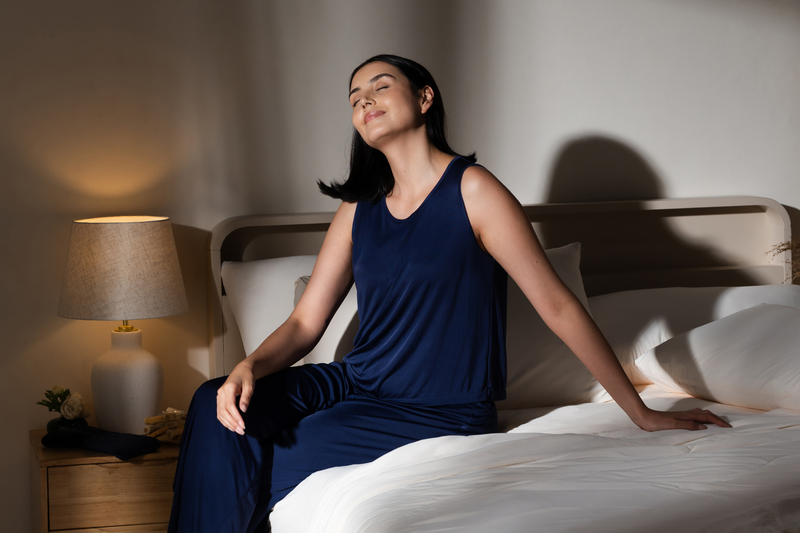Mouth Taping: Good or Bad? Sleep Expert Weighs In

Can Mouth Taping Lead to Better Sleep?
TL;DR: Mouth taping is a trending sleep hack that encourages nasal breathing, which may reduce snoring, improve sleep quality, and support oral health. While safe for some, it’s not recommended for people with nasal congestion, sleep apnea, GERD, or skin sensitivity. If you try it, use hypoallergenic tape, start with short trial runs, and consult a doctor first to ensure it’s right for you.
Mouth taping was a recent social media trend that exploded, with new products touting nasal breathing and the benefits that came with taping your mouth closed at night. Though unusual, mouth taping may help some people to potentially improve sleep quality. In this article, we’ll cover the science behind mouth taping, its potential benefits and risks, and how to approach it safely. If you're considering mouth taping or looking for ways to address mouth breathing, this article may answer many of your questions.
What is the Purpose of Mouth Taping?
Mouth taping helps keep your mouth closed while you sleep, promoting nasal breathing. Studies show that nasal breathing has several advantages over mouth breathing, particularly when it comes to maintaining moisture, filtering air, and optimizing oxygen intake. For those who have developed a tendency to sleep with their mouths open, using mouth tape may encourage nasal breathing.
The Benefits of Mouth Tapes
People who breathe through their nose tend to experience fewer sleep disturbances because nasal passages can naturally humidify and filter incoming air from dust and allergen, reducing the risk of irritation and dryness. Mouth breathing, on the other hand, has been linked to symptoms like snoring and sleep cycles.
For some, mouth breathing during sleep is a habit formed over time, often due to sinus issues or even stress. Mouth taping serves as a gentle reminder to keep the lips sealed and promotes nasal breathing. If you struggle with mouth breathing due to anxiety or nasal congestion, addressing those root causes can also help in the long run.

Does Mouth Taping Improve Sleep?
Yes, mouth taping can help support better sleep by reducing open-mouth breathing, which often leads to snoring and interrupted sleep. By encouraging nasal breathing, some people find that they wake up feeling more rested and experience less daytime fatigue. For couples, a snoring partner is a common sleep disturbance, and could be remedied if the snorer uses mouth tapes.
Tips for Mouth Taping
If you're interested in trying mouth taping, here are some helpful techniques and tips to ensure you do it safely and effectively:
- Use Specialized Tape: Ordinary tape can be too strong for facial skin, causing excess pulling and irritation. Look for hypoallergenic medical tape specifically designed for skin or products designed to use as mouth tape. Opt to find breathable, skin-friendly tapes that won’t harm your lips or face.
- Positioning the Tape: Some people apply a small strip of tape vertically across the center of their lips, which is enough to keep the mouth closed without feeling too restrictive. This method also makes it easier to breathe through the mouth if needed, especially when first trying it out.
- Trial Runs During the Day: If you're new to mouth taping, consider trying it for short naps or even while watching TV. This helps you get used to the sensation and ensures you’re comfortable before wearing it overnight.
- Other Methods for Training the Mouth to Stay Closed: If mouth taping seems uncomfortable, you could try techniques like jaw exercises or using a chin strap that gently supports your jaw during sleep.
Safety and Risks of Mouth Taping
"If you have no issues breathing through your nose, in theory, it should be safe to mouth tape. However, it's important to talk to your doctor before you adopt the practice of mouth taping."
While there are benefits to nasal breathing, Dr. Roban, sleep expert and ambassador for Rest, cautions that mouth taping may not be suitable for everyone and certain circumstances may make mouth tapes unsafe.
- Breathing Obstructions: If you suffer from chronic nasal congestion, post nasal drip or have a deviated septum, mouth taping may not be suitable. For some people, forcing nasal breathing could lead to discomfort or anxiety at night.
- Sleep Apnea: It’s especially important for people with sleep apnea to seek medical advice, as they may need a CPAP machine or other treatments that support unobstructed breathing during sleep.
- Reflux: If you have GERD (Gastroesophageal reflux disease), which is when stomach acid flows back up the esophagus, mouth taping could be unsafe.
- Skin Sensitivity: Mouth taping may also cause allergic reactions to the skin. Hypoallergenic medical tape can minimize irritation, and positioning the tape carefully can reduce any pressure on the skin around your mouth.
- Checking in with a Doctor: If you experience any discomfort or if you have existing respiratory conditions, consult your doctor before trying mouth taping.
Why is Mouth Breathing Bad for Your Teeth?
Mouth breathing can cause dry mouth, which is linked to increased bacteria growth and a higher risk of cavities. Saliva helps protect the teeth by washing away food particles, neutralizing acids, and prevent mouth infections. Meanwhile, reduced saliva flow during mouth breathing can lead to dental issues over time and even bad morning breath. Mouth taping encourages nasal breathing, which helps keep your mouth more hydrated and maintains better oral health overall.

Is Mouth Taping Right for You?
While mouth taping isn’t for everyone, it can be a helpful tool for those looking to improve sleep quality and reduce the impact of mouth breathing. In the end, mouth taping is a low-cost, low-effort method which may lead to more restful, uninterrupted sleep by reinforcing the benefits of nasal breathing.
#TheRestIsMagic
References:
- Zhao, W. et al. (2021). "Impact of Mouth vs. Nasal Breathing on Health." Journal of Sleep Research.
- Randerath, W. et al. (2018). "Nasal Breathing and Sleep Apnea." Sleep Medicine Reviews.
- Brook, I. (2007). "The Role of Saliva in Oral Health and Disease." Oral Health and Dental Management.






